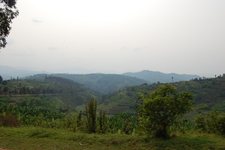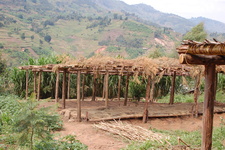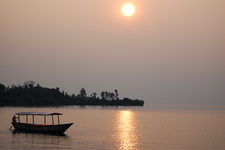I'm currently knee-deep in mission trip preparations for my team's 2014 trip to Rwanda. As part of this mission trip preparation, I'm working hard to shatter any Messiah complexes my team members might have.
That Messiah complexes exist in teens is certainly regrettable, though not surprising. They are, after all, prevalent in mainstream culture.
Consider for a moment, the popular Christmas song, Do They Know It's Christmas?
The chorus of this song says,
And there won't be snow in Africa this Christmastime
The greatest gift they'll get this year is life
Where nothing ever grows
No rain nor rivers flow
Do they know it's Christmastime at all?
before then imploring us to, “Feed the World”.
Now, there are certainly hungry people throughout the world that need to be fed. By all means, when we encounter hungry people, let's meet their immediate need by feeding them.
That said, the reality is that feeding the world requires more than “spreading a smile of joy” like this song suggests. It requires us to partner with researchers, scientists, and farmers in the hopes of finding long-term sustainable solutions to this problem. It also requires us to partner with organizations who are actively working to feed people and open our wallets and give monetarily to them (An example of one such organization is Heifer International).
Now, perhaps if this song weren't also problematic in other ways, I could forgive it's overly simplistic solution to world hunger. But the reality is this song also perpetuates false stereotypes of Africa so great that they foster white superiority and the Messiah complexes prevalent in our nation, and even in our church's.
According to the song's chorus, nothing ever grows in Africa. Certainly, there are places in Africa where this is true, just as there are places in the United States where it is difficult, if not impossible, to grow things. However, this is not the case everywhere.
Take, for example, Rwanda, which is known as the land of a thousand hills, many of which are filled with lush banana trees. Even in Kiziba Refugee Camp, perched at the top of one of Rwanda's hills, people grow things.
In fact, in Kiziba, a youth organization plants and maintains a garden in order to provide the most vulnerable people in the camp with food to supplement the meager rations given to them by the United Nations.
According to the song's chorus, “no rains nor rivers flow” in Africa. Again, there are certainly places in Africa that are deserts as well as wet and dry seasons that make water more precious at certain times of the year than in others.
There are also places where rivers flow freely (Ever heard of the Nile?) as well as lakes like Lake Kivu. From what I observed, the water problem in Africa isn't that there isn't any; It's how to harness the water there is, preserve it for use during the dry seasons, and figure out how to purify it so it can be drunk safely.
Unfortunately, the verses of Do They Know It's Christmas? are just as problematic as it's chorus. According to one, “There's a world outside your window and it's a world of dread and fear.” This, perhaps, is the line that angers me most of all.
As with any other place in the world, life in Africa is different than life in the United States. But who are we to assume that any world outside of the United States is one full of dread and fear? Just because something is different doesn't mean that it's less than or even bad. To suggest otherwise is arrogant, and no doubt perpetuates Messiah complexes that suggest the solution to their problem is me.
Such attitudes are unhealthy in every way – they're one reason why short-term mission trips have gotten such a bad reputation. What's more, such attitudes destroy relationships. How can we possibly cultivate a relationship of mutuality if we go into a situation believing that we are right and better and that they, as the song says, are “helpless”?
The answer, of course, is that we can't, which is why my team spends almost a year preparing for it's trip to Africa. Specifically, we learn about Africa and of course about the particular country to which we are going, Rwanda. We also learn about how to navigate cross-cultural ministry and relationships. We do so in order to combat untrue stereotypes like the ones in this song. We do so in order to learn that different isn't bad. We do so hoping that when we encounter differences, we will do so with a heart ready and willing to learn – about others, God, and in the process, ourselves.
I hope that even now – eight months before our trip - our team knows enough about these things that when they hear this song this Christmas, they'll be able to say, with certainty, “Yes, they know it's Christmas.”
In fact, my hunch is they know this in a more profound way than we ever will.


